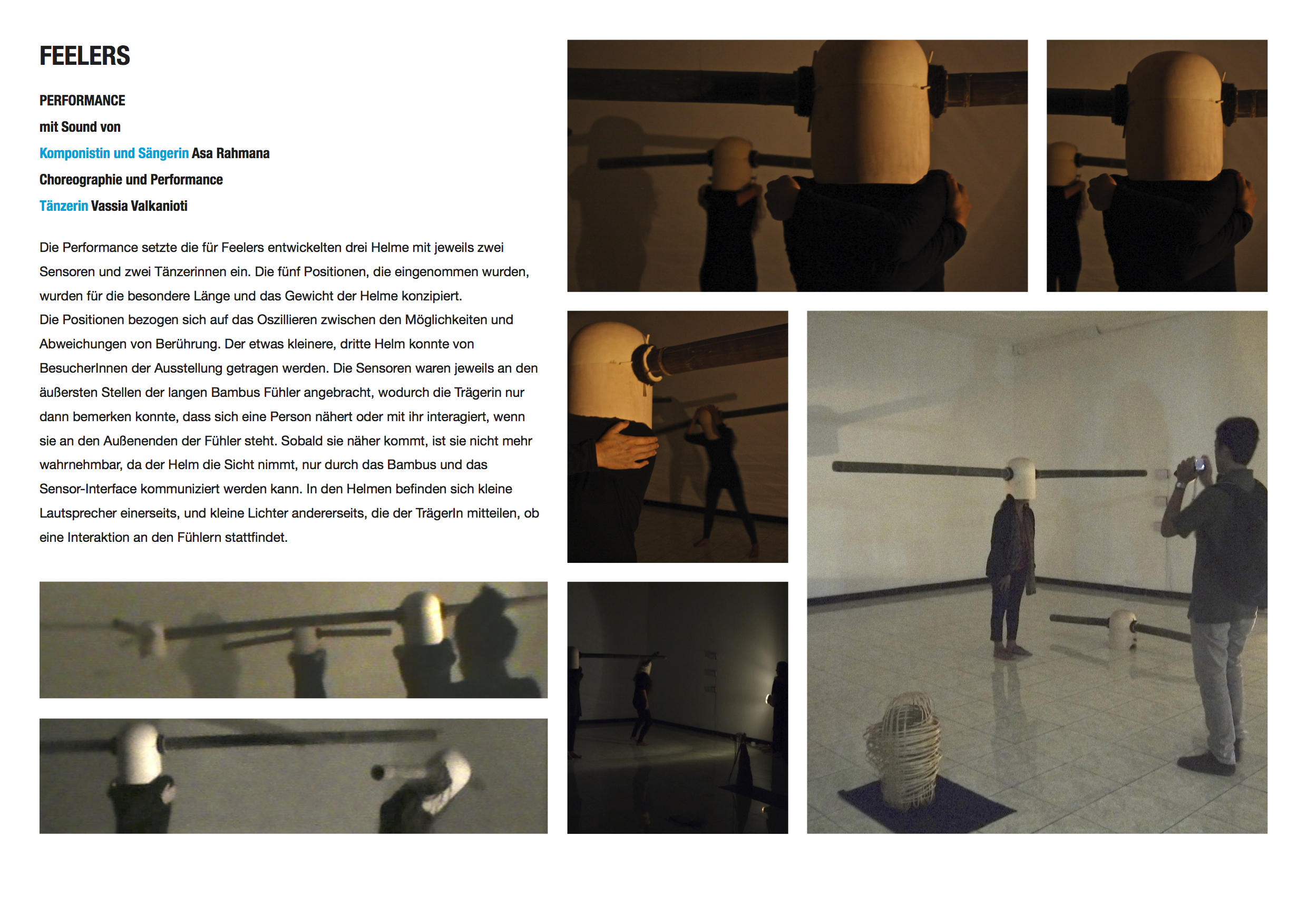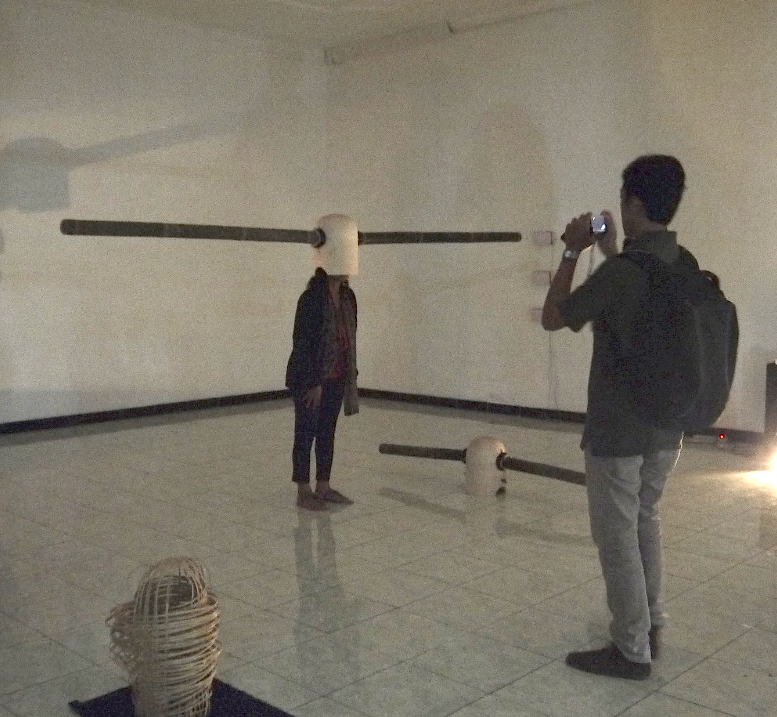Installation: wood, bamboo, arduino, piezos, distance sensor, leds, wire, feather, servo motor
![]()
![]()
![]()
![]()
![]()
![]()
![]()
![]()
![]()
Three wood helmets with feelers from bamboo, equipped free-hardware sensors are hanging from the ceiling. Two performers wearing the helmets with restricted view, try to navigate through the sensory interface. Close objects are not traceable at all, while far away objects become visible in the distance and can be evaluated through sensors.
PERFORMER: Vassia Valkaniote
M2U00488 from STefanie Wuschitz
M2U00497 from STefanie Wuschitz
SOUND: Asa Rahmana
sound_asa
M2U00497 from STefanie Wuschitz
Helmet nr. 1:
M2U00499 from STefanie Wuschitz
M2U00497 from STefanie Wuschitz
A person close to the helmet’s feeler will trigger a servo motor that touches the user of the helmet with a moving feather.Helmet nr. 2:A person close to the helmet’s feelers will generate a sound inside the helmet through coming closer.Helmet nr. 3:By knocking on the feeler the helmet’s user will be informed about outside contact through light going on and off inside the helmet.
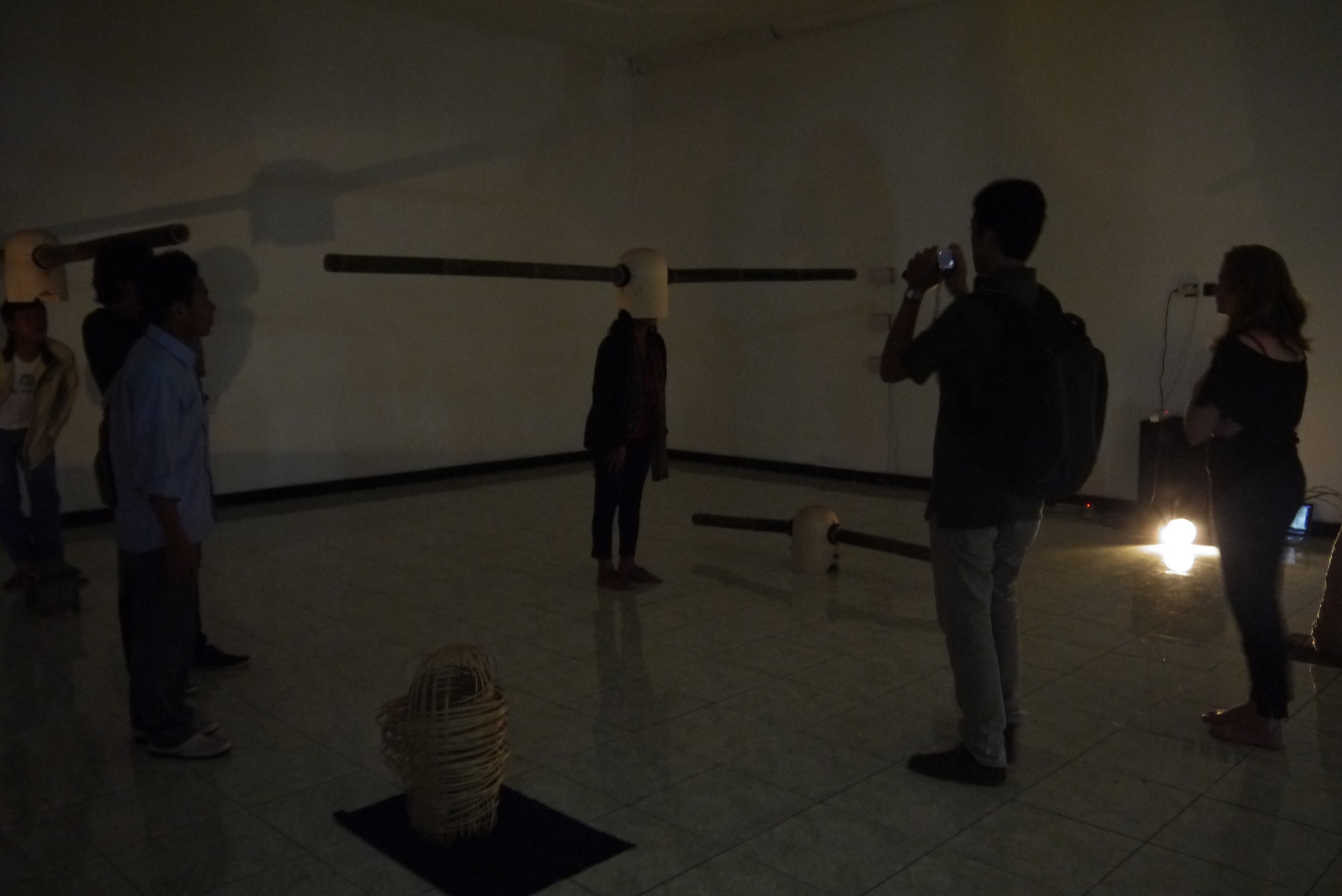
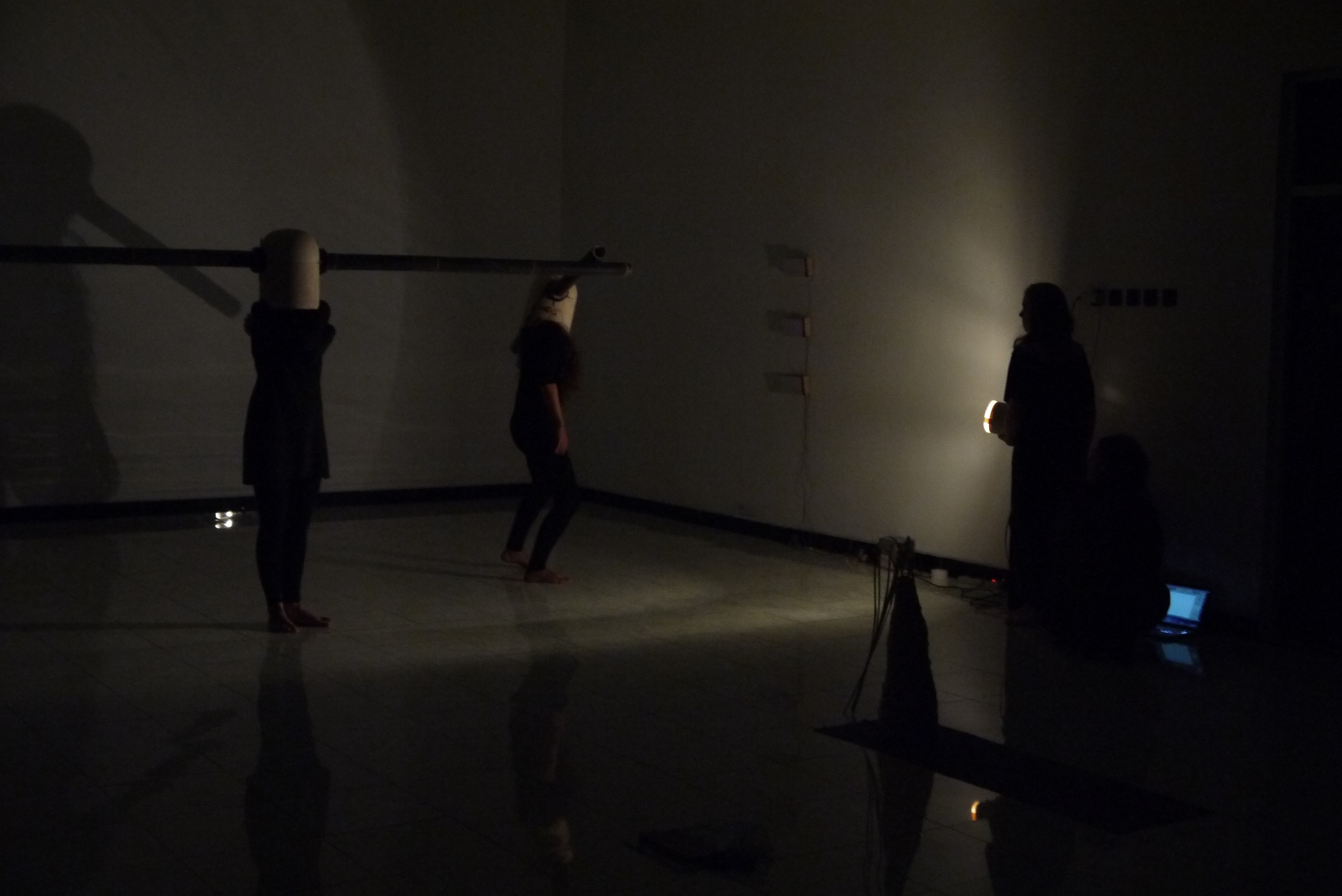
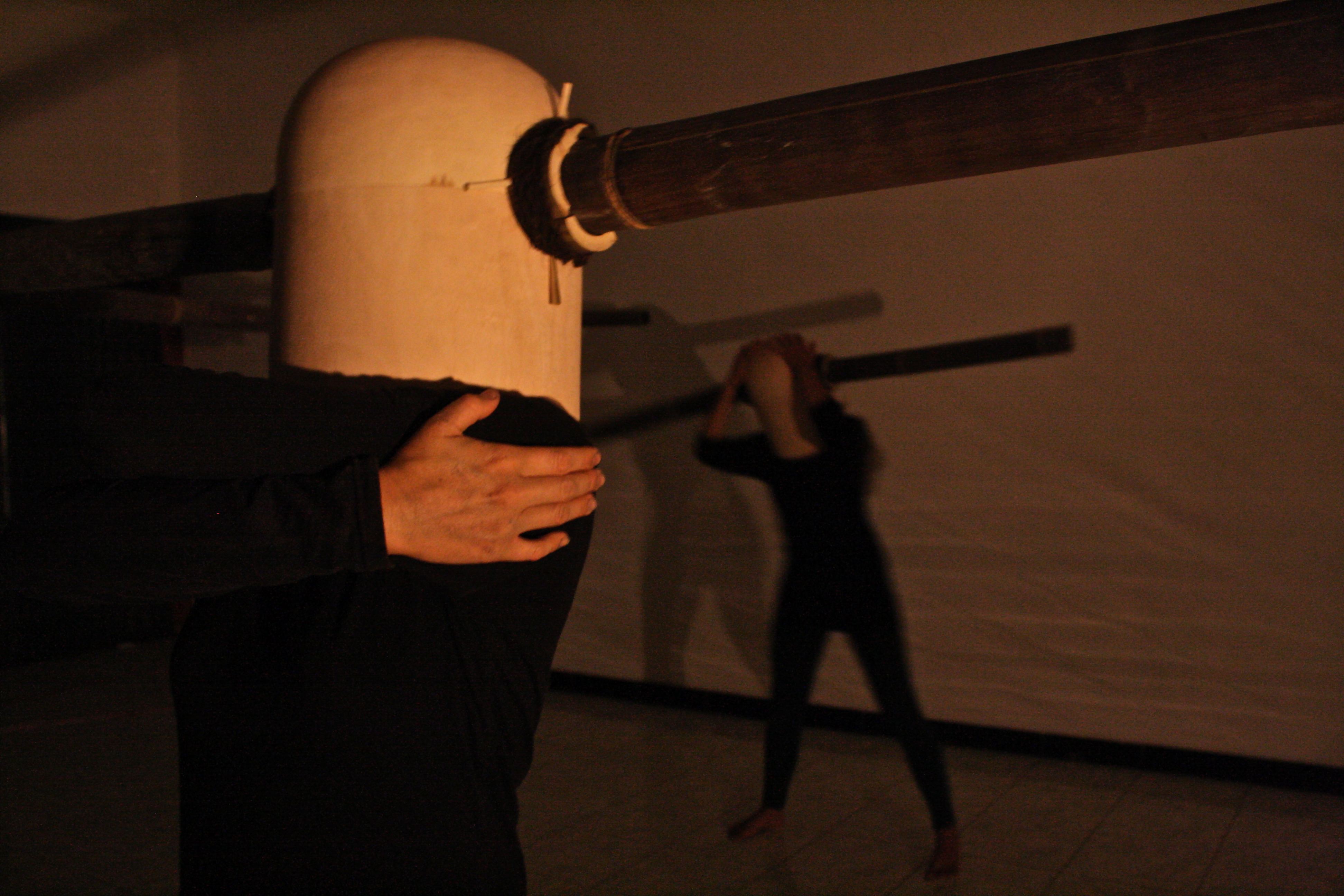
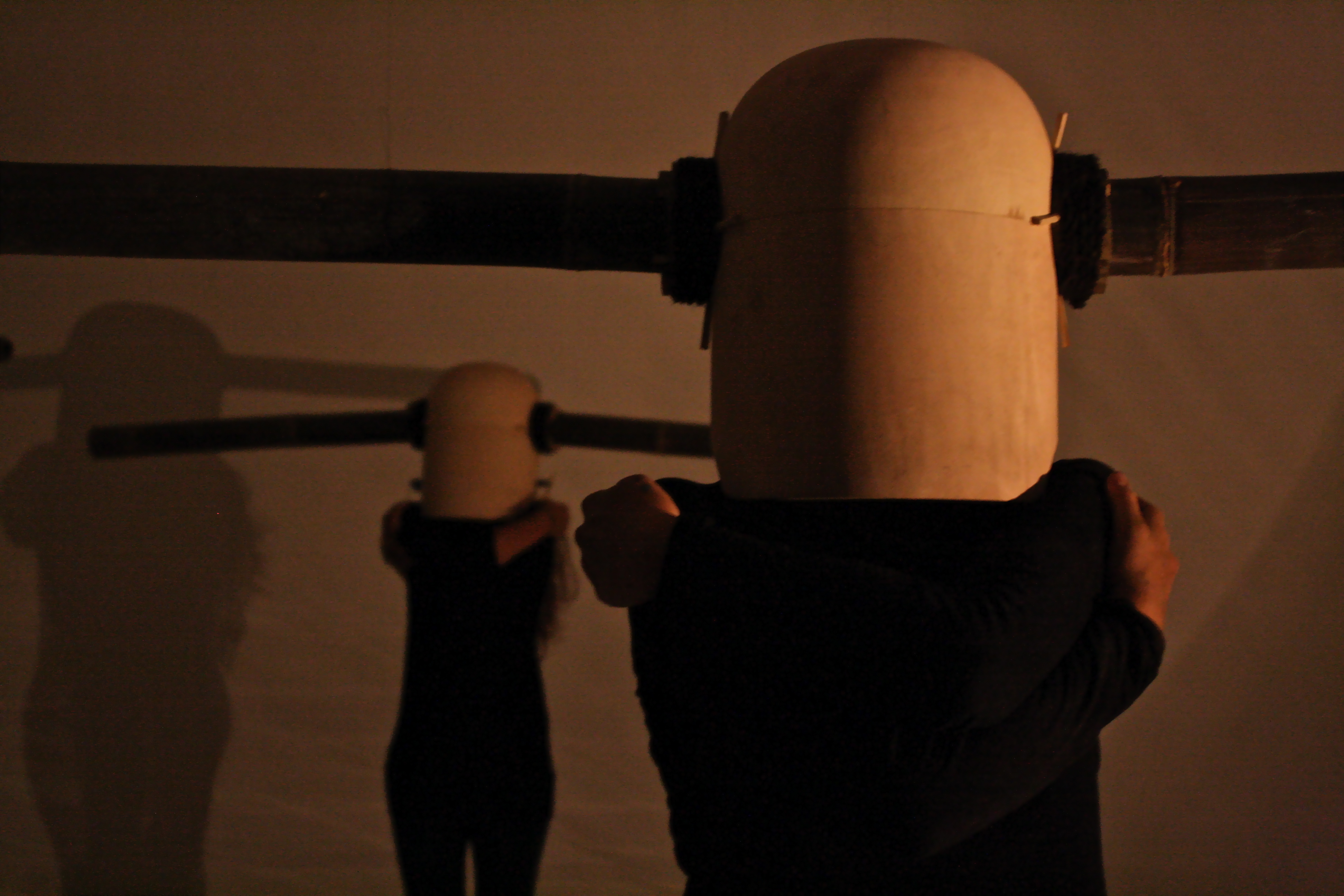

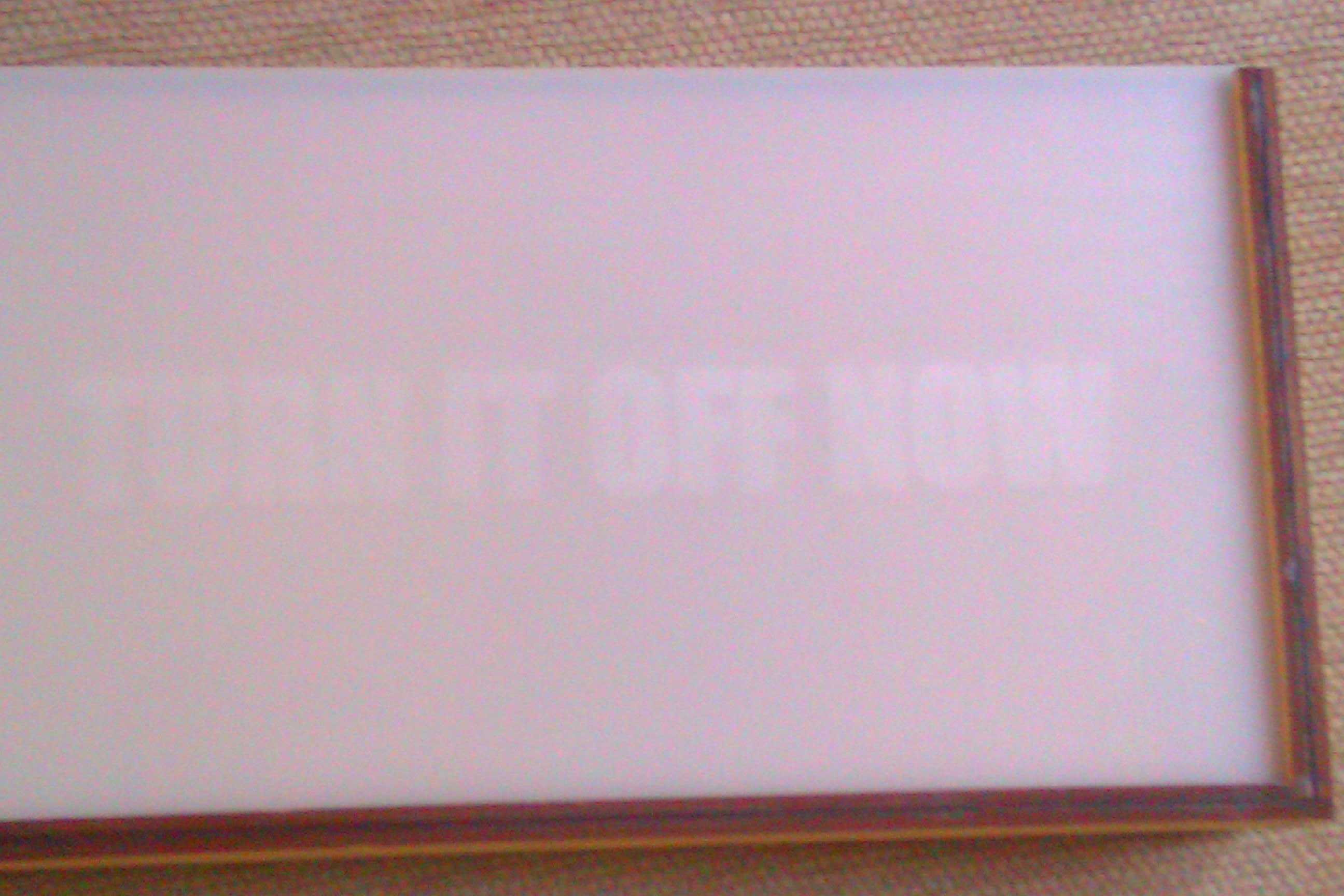
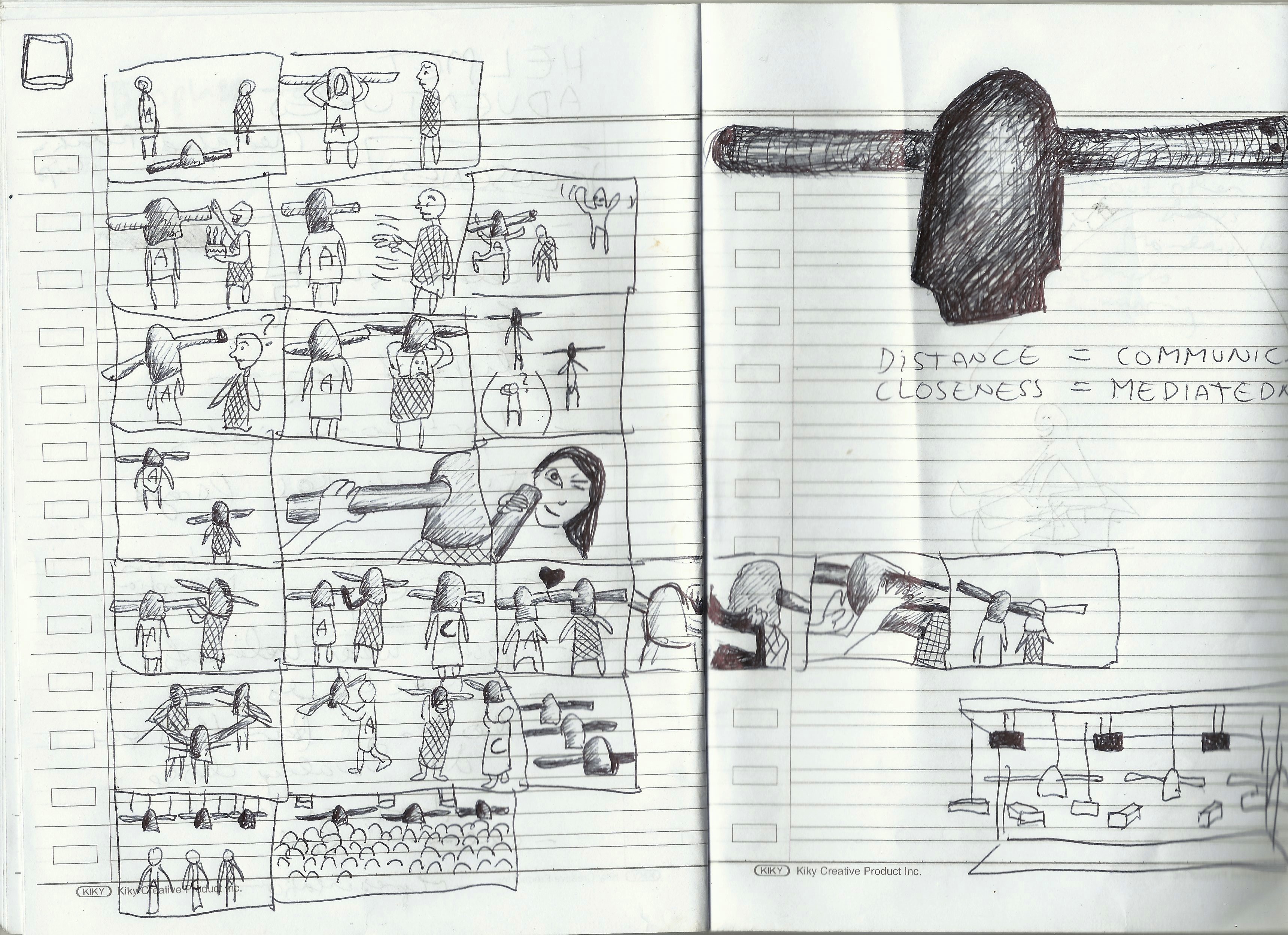

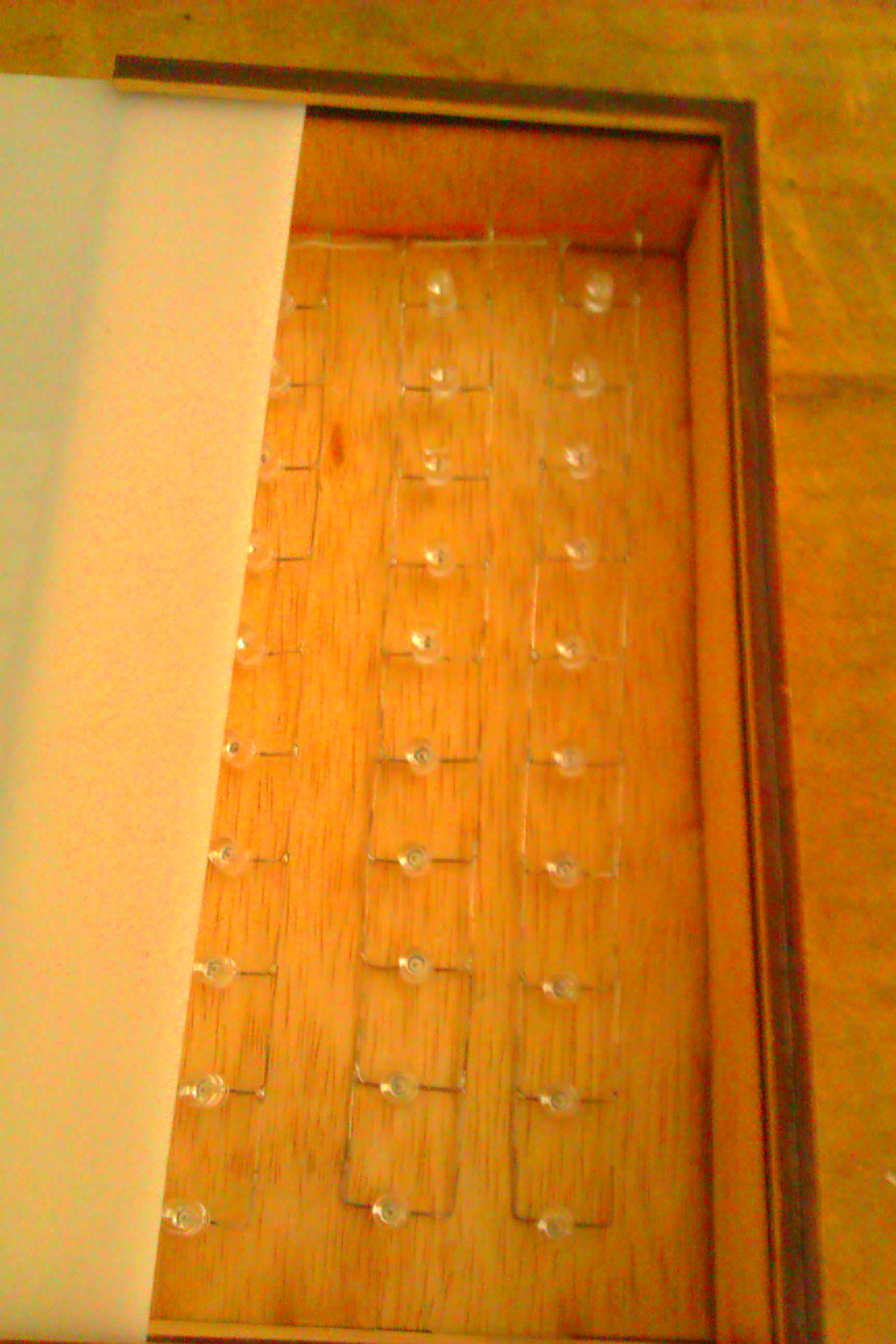
At the background of stage:
three light boxes, with infra-red light. The letters written on the boxes are only readable when observed through a smart phone camera. The letters tell the viewer to shut the smart phone off.
INFRA RED BOX nr.3
INFRA RED BOX nr.2
INFRA RED BOX nr.1
When the financial crisis hit Europe community were already fragmented and weak due to years and years of decline of social
structures. People have traded 5 real world friends against 500 facebook friends and thought it was a good deal. When people started to experience the hardship of the financial crisis the lack of real relations, real friends, real encounters became evident.
In crisis people come together, work collectively on projects, share equipment and tools. Yet, people have forgotten how to communicate, collaborate, relate to someone else’s needs.
The richer we had gotten the less we wanted to deal with conflicts evolving in relationships. The more we abandoned relations to others the more we consumed. The more we consumed the more fear we felt that people around us would take what we consumed. They became potential enemies. It led to an atomization of relations while at the same time online relations exponentially grew. Through online social media our relations got constantly broadcasted. We were not listening to one friend who listened to us in a conversation, but we were observing many while many were observing us. Every conversation and experience was mediated through recording, commenting, documenting online. We were not present because we were busy presenting our presence to our future audience. The proximity online was an illusion. The collapse of the economic system shows that we are obedient spectators. Deprived from resources we are unable to organize ourselves and share what we have.
The proximity turns into distance. The person next to us appears to exist. We are present.
People socialized to take care of social relations are called „women“. In Europe girls and young women are trained by their family to be open towards other’s needs and desires and try to respond to them as much as they can. Taking care of old people, babies, handicapped persons is often in the hands of people socialized as female.
In a crisis of all relations collapse.
There are communities that are living and sharing commons, that organize and celebrate and cultivate openness, embracing strangeness, who are people-centered.
There could be a community that supports unique trajectories while at the same time cultivating relations among individuals. Supporting personal decisions without restrictions. Grow young people in:
rich – distance
poor – close
empowered – collaborative
law and justice : vs. Individualized relation understanding someones motivation and needs - bamboo helmet to look into distance only – mobile phone to hear closeness only
Nov 12, 2013




